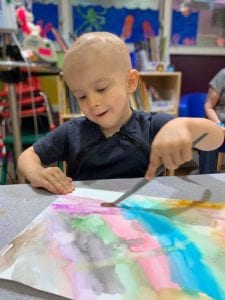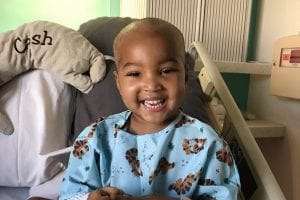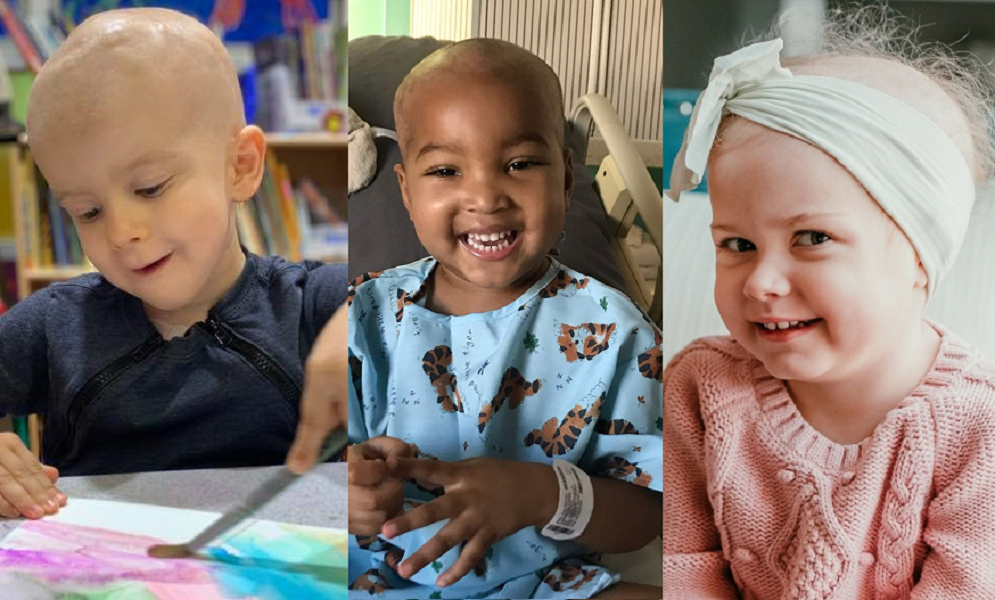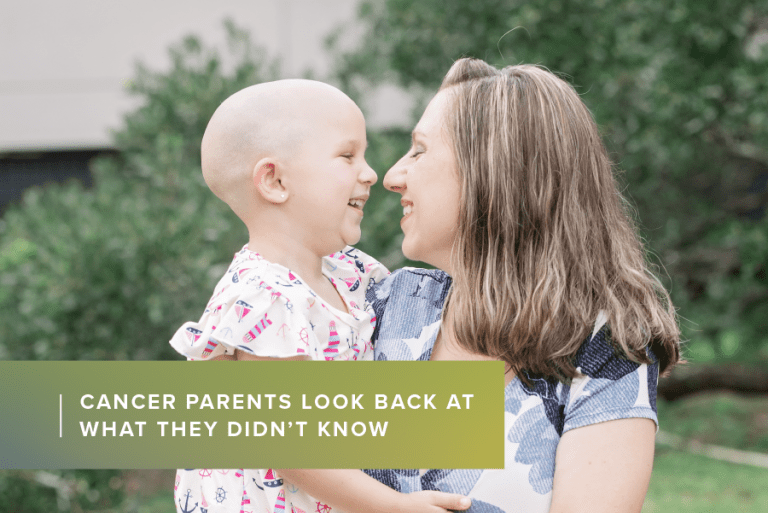Above from left to right: Cancer survivors Connor, Cash and Harriet. Click on their names to read their stories.
Following the outbreak of COVID-19, Beau Webber, PhD, an expert in genetic engineering and stem cell research, had to essentially shut down his lab for two months.
2020 was a tumultuous year for many childhood cancer researchers, whose work most often takes place in labs that require hands-on, in-person work.
“The lab is where everything important happens,” said Beau Webber, PhD, an expert in genetic engineering and stem cell research at the University of Minnesota. His lab had to essentially shut down for two months following the outbreak of COVID-19.
However, many researchers were able to continue pursuing big ideas this year, despite the extra challenges. Research into new and innovative ways of fighting childhood cancers, including leukemia, osteosarcoma, neuroblastoma and brain tumors moved forward.
Here are our top 5 childhood cancer research wins of 2020.
An Achilles heel for mixed lineage leukemia

Connor (above) is a brain tumor survivor. Click to read Connor's Story - Shining Hope.
Maxim Pimkin, MD, PhD at Dana-Farber Cancer Institute in Boston is exploring how depleting two proteins in the body could save children with an especially dangerous kind of leukemia.
The road to a clinical trial for childhood brain tumors
Researchers Christopher Moertel, MD and Michael Olin, discovered that brain tumors sometimes shield themselves with a protein called CD200, preventing a child’s immune system and treatment from attacking it. His goal was to “turn off” this shielding CD200 protein, allowing a previously developed vaccine and the child’s immune system a chance to eradicate the brain tumor. This summer, the FDA approved a new vaccine that Moertel and Olin hope will do just that.
Treating leukemia with microbubbles

Three-year-old Cash, who is currently fighting leukemia. Read Cash's Story here.
Some types of childhood leukemia have two genes that fuse together to form a cancer-causing fusion protein, and some of these proteins make the leukemia extremely difficult to treat. But Ani Deshpande, PhD at Sanford Burnham Prebys Medical Discovery Institute in California is working to target previously ‘undruggable’ proteins… which aren’t as rare as scientists once thought.
Researchers use “biological scissors” to cut off paths for osteosarcoma
University of Minnesota researcher Beau Webber, PhD, is hopeful that he can use new genetic findings to attach osteosarcoma from all angles, using the immune system and “biological scissors” that can edit DNA.
Targeting pathways for neuroblastoma
Researchers have recently discovered a genetic pathway that drives neuroblastoma, but the haven’t developed a drug that will stop it. But Xingguo Li, PhD at the University of Rochester in New York is generating data that will allow him to take aim at this new pathway, stopping neuroblastoma in its tracks.
Donate to keep research moving forward
This year has been a big strain on childhood cancer research specifically, because it is already underfunded and granting is notoriously competitive. Scientists need philanthropic support to navigate this challenging time and fund new ideas. Donate today to ensure this important research keeps moving forward.




